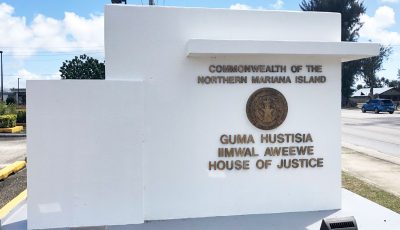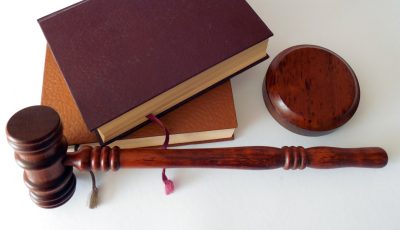Supreme Court affirms disbarment order vs lawyer
On Dec. 9, 2015, the Supreme Court affirmed the trial court’s order disbarring Stephen C. Woodruff from the practice of law by a 2–1 vote, in In re Woodruff, 2015 MP 11. On appeal, Woodruff argued the trial court erred by: (1) applying the Rules of Civil Procedure to determine the deadline for a response to an amended complaint in a disciplinary proceeding, and (2) refusing to set aside the default.
Nine complaints were submitted regarding Woodruff’s conduct as an attorney between 2008 and 2012, alleging Woodruff’s failure to communicate with clients and complete work for which he was paid. Based on these claims, disciplinary counsel filed a request with the Supreme Court for Woodruff’s interim suspension from practicing law pending resolution of a disciplinary proceeding. The high court granted the interim suspension, and disciplinary counsel subsequently filed a complaint against Woodruff in the trial court. Two weeks later, disciplinary counsel filed and served upon Woodruff an amended complaint, indicating the deadline for a response. When Woodruff failed to respond by the due date, disciplinary counsel filed for an entry of default, which the trial court granted. Woodruff then requested that the trial court set aside entry of default, asserting he was unclear about when his response was due. The trial court denied the request, held a hearing on the default judgment, and disbarred him from the practice of law.
In the majority opinion, the Supreme Court held the trial court did not err by applying the Rules of Civil Procedure to determine Woodruff’s response deadline. Although the NMI Rules of Attorney Discipline and Procedure do not expressly incorporate the Rules of Civil Procedure with regard to amended pleadings, the trial court appropriately referred to the Rules of Civil Procedure in light of gaps in the disciplinary rules.
As to whether the trial court erred by refusing to set aside the default, the high court noted Woodruff admitted his failure to respond was due to his own inattention. In paragraph 24 of the opinion, the high court commented: “[T]he basis for the disciplinary action involved multiple complaints that Woodruff failed to diligently pursue legal matters, including repeated allegations of his failure to adequately communicate with clients and to timely complete work. If he were a layperson, his conduct in this case might not rise to the level of an act that is willful, deliberate, or in bad faith that would qualify as intentional. But because Woodruff is an attorney, who should appreciate the legal consequence of default, we conclude his failure to respond was due to his culpable conduct.”
The minority agreed that the trial court did not err by entering default and refusing to set aside the entry of default. However, because disbarment is a severe consequence, the minority would have exercised the high court’s inherent authority to regulate attorney conduct in reversing and remanding for a disciplinary hearing.
Ultimately, the majority affirmed the trial court’s entry of default and default judgment order disbarring Woodruff from the practice of law.
The high court’s full opinion is available at http://www.cnmilaw.org/supreme15.html. (NMI Judiciary)



























